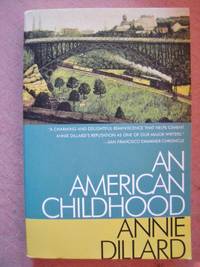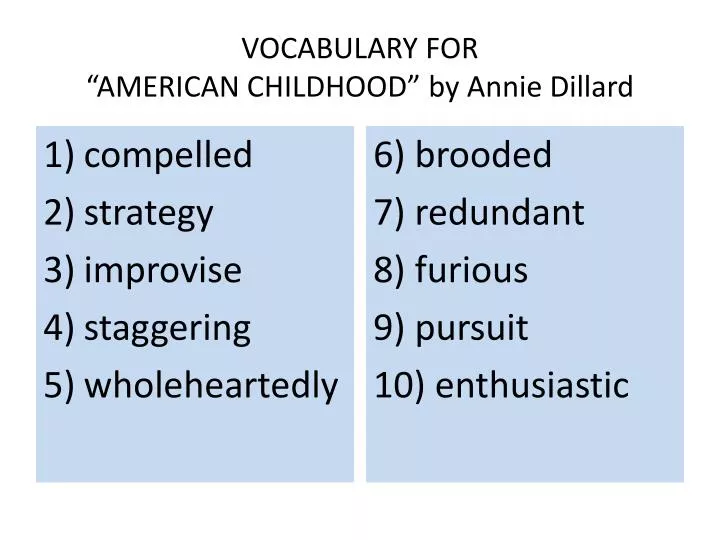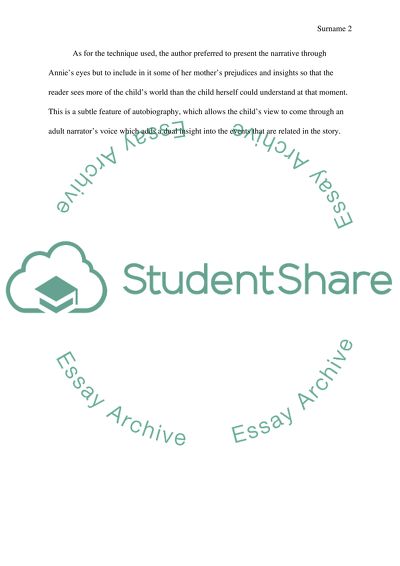

In contrast to many children, Dillard lived in wealthy family and had an opportunity to visit a private school. In her autobiographical An American Childhood (1987), Dillard recalls being encouraged by the Ellis headmistress to apply to Hollins College in Roanoke, Virginia, where “her rough edges” would be smoothed off Annie herself hoped that those rough edges would be “a can opener, to cut … a hole in the world’s surface” through which she could escape (243). Many contemporary children of the Protestant tradition have left the church, wandered into wonder, and gone through it and out the other side into the maze of appealing and interesting religious and ethical traditions from the world over. In high school she loved poetry and Emerson, and took English literature and theology in college.

They made other ideas seem mean.” Teenage doubts began to bother, and she briefly quit church at age 16 to be lured back when the minister loaned her works by C. They were the first ideas I ever encountered.

She remembers, “I had a head for religious ideas. Her paternal grandfather was a strict Scots-Irish Presbyterian and her father, though lapsed, dropped his children off at Sunday school and church and sent them to church camp. Main bodyĭillard was the eldest of the three daughters of Frank and Pam Lambert Doak. On the other hand, she had unique childhood influenced by religious values of her mother and rebellious nature of her father. On the one hand, Annie Dillard had typical childhood born in a small town. In the autobiographical book, An American Childhood, Dillard depicts her childhood memories and unique experiences, which shaped and influenced her personality and writing style.


 0 kommentar(er)
0 kommentar(er)
